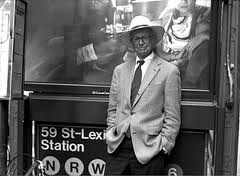Right you are, Belle of Amherst. Today I embarked aboard another frigate, Making Masterpiece, the memoirs of Rebecca Eaton, who spent 28 years as executive producer of Masterpiece Theatre and Mystery!
I’m looking forward to the rest of my journey with Rebecca Eaton. But I’m not alone. My wife’s uncle Roger is there with me.
I’d also begun reading The Three Musketeers a week or so ago. I was eager to get to Ms Eaton’s book, but I’ll definitely finish the Alexandre Dumas classic too. My childhood bud Peter is accompanying me on that voyage.Roger and Peter have both passed on from this life. But when I sit down and open the pages of these books, memories of those friends return to me like a gentle refrain from a favorite song of my youth. Marking my place, and the beginning and end of my day aboard the frigate, is the little remembrance card that I took home from the funeral home after attending their wakes. My old friends start on the book-journey with me, and they bid me adieu when the trip is done.
I have many of those remembrance cards. They’re in a little stack on the corner of a bookcase shelf. I began using them as bookmarks a year or two ago. And as I sit down to read the stories of other people and their lives on the printed pages, I can’t help but recall the little stories of these bookmark friends.
Roger was a bombardier in World War II. His B-17 was shot down over Germany. He had to kick open the jammed bomb bay door just in time to bail out. He broke his leg when hitting the ground, was captured by a farm family, and spent two years in a POW camp. I know few people who were as unfailingly cheerful and gregarious as Roger. Those wartime privations and near misses must have taught him what really matters.
Peter was a grade-school classmate, sandlot-ball companion, and fellow altar boy. He had a devilish sense of humor and an impish grin. I saw little of Peter as we grew to late adolescence and adulthood, so I never knew how good an athlete he’d become in college. I also found, after he’d departed, how seriously and how long he believed in the old-time religion that we were both force-fed as youngsters. The last chapter of Peter’s life was one of heroic sacrifice. He gave up his career and moved across the country to take care of a son who’d been injured and permanently incapacitated by a drunk driver.
Other old friends wait to rejoin me on future book voyages.There’s Sam, a wonderful gentleman I got to know well when I was raising funds at Boston College. He ran an industrial-sized laundry plant for hospitals. It was stifling hot in that place all year-round, a miserable working environment. Or so you’d think. Sam was a demanding boss, but he was so hard-working and fair-minded that he had a long waiting list of prospective employees eager to come and work for him. Study management theory in my MBA classes? Nope. I just observed Sam at work.
Jackie’s there. She was the mom of one of my best friends from high school days. So pretty, so sweet, so exquisitely put together, and so tolerant of our mischief and antics. I adored Jackie. But I don’t think I realized how much I cared for her until she passed on a few years ago. We weren’t supposed to be in love with our friends’ mothers. I blush now when I think of the tremendous teenage crush I had on her, one that I was never able to admit to myself.
Fernie from the world of hockey is there. Most would remember him only as a genial college coach. I’m old enough to have seen him play. He was a ferocious defender; woe betide any opponent who ventured near the goal when Fernie was on duty. He showed me that it is possible to be a thoroughly nice man in one context and a carnivorous myrmidon in another. In hockey, there was no better friend and no worse foe than Fernie.
I also see Jack, the high-school classmate whose career as a social worker was made immensely more difficult by a succession of serious illnesses and health problems of his own; Bobby, the acid-tongued but good-hearted sportswriter whose techniques I observed and with whom I drank more than a few beers; Paul, World War II veteran, Iwo Jima survivor and leading citizen of my native town of Hopkinton, whose sister taught my older siblings in first grade; Daniel, a distant in-law I never knew personally but whose taking of his own life was heartbreaking and incomprehensible.
The list can go on. Oh yes, it will go on, and some day my name will be on it too. Until then, I’ll keep adding to my personal edition of the list. I’ll gladly re-visit and fondly remember its distinguished citizens.
In her first chapter, Rebecca Eaton reflects that Masterpiece Theatre is essentially “…stories about families. Family stories are sagas: love, betrayal, money, infatuation, infidelity, illness, family love, and family deception.”
As she went through old papers, pictures, and documents in preparing to write about her own life and her own family, Eaton said that she’d come to recognize “the really important thing – the stories, and the stories behind the family stories that we all have.”
Perhaps the stories of those I take along on my book-frigate journeys are not writ as large as those of the kings, queens, prelates, princes, and aristocrats of Masterpiece Theatre. But to me, they are that “really important thing” that Rebecca Eaton mentioned. In small ways, and sometimes in larger ones, their stories are bound up with the story of my own life. They helped make me who I am.






